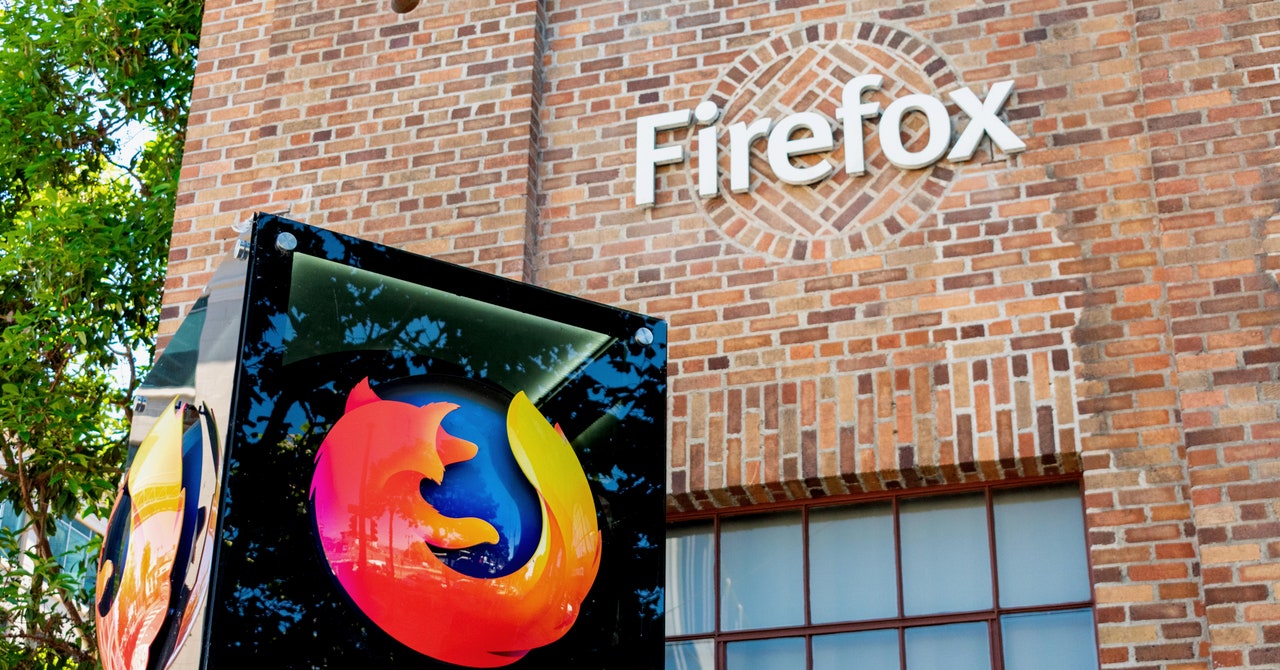 +++lead-in-textnnAt the end of 2008, Firefox was flying high.Twenty percent of the [1.5 billion people online](https://www.internetworldstats.com/pr/edi036.htm) were using Mozilla’s browser to navigate the web.In Indonesia, Macedonia, and Slovenia, more than half of everyone going online was using Firefox.“Our market share in the regions above has been growing like crazy,” Ken Kovash, Mozilla’s president at the time, wrote in a [blog post](https://blog.mozilla.org/metrics/2008/12/01/firefox-surpassing-50-market-share-in-more-regions/).Almost 15 years later, things aren’t so rosy.nn+++nnAcross all devices, the browser has [slid to](https://www.statista.com/statistics/268254/market-share-of-internet-browsers-worldwide-since-2009/) less than [4 percent](https://www.w3counter.com/trends) of the market—on mobile it’s a measly [half a percent](https://gs.statcounter.com/browser-market-share/mobile/worldwide).“Looking back five years and looking at our market share and our own numbers that we publish, there’s no denying the decline,” says Selena Deckelmann, senior vice president of Firefox.Mozilla’s own statistics show a drop of around 30 million monthly active users from the [start of 2019 to the start of 2022](https://data.firefox.com/dashboard/user-activity).“In the last couple years, what we’ve seen is actually a pretty substantial flattening,” Deckelmann adds.nnIn the two decades since Firefox launched from the shadows of Netscape, it has been key to shaping the web’s privacy and security, with staff pushing for more openness online and better standards.
+++lead-in-textnnAt the end of 2008, Firefox was flying high.Twenty percent of the [1.5 billion people online](https://www.internetworldstats.com/pr/edi036.htm) were using Mozilla’s browser to navigate the web.In Indonesia, Macedonia, and Slovenia, more than half of everyone going online was using Firefox.“Our market share in the regions above has been growing like crazy,” Ken Kovash, Mozilla’s president at the time, wrote in a [blog post](https://blog.mozilla.org/metrics/2008/12/01/firefox-surpassing-50-market-share-in-more-regions/).Almost 15 years later, things aren’t so rosy.nn+++nnAcross all devices, the browser has [slid to](https://www.statista.com/statistics/268254/market-share-of-internet-browsers-worldwide-since-2009/) less than [4 percent](https://www.w3counter.com/trends) of the market—on mobile it’s a measly [half a percent](https://gs.statcounter.com/browser-market-share/mobile/worldwide).“Looking back five years and looking at our market share and our own numbers that we publish, there’s no denying the decline,” says Selena Deckelmann, senior vice president of Firefox.Mozilla’s own statistics show a drop of around 30 million monthly active users from the [start of 2019 to the start of 2022](https://data.firefox.com/dashboard/user-activity).“In the last couple years, what we’ve seen is actually a pretty substantial flattening,” Deckelmann adds.nnIn the two decades since Firefox launched from the shadows of Netscape, it has been key to shaping the web’s privacy and security, with staff pushing for more openness online and better standards.
But its market share decline was accompanied by [two rounds of layoffs at Mozilla during 2020](https://arstechnica.com/information-technology/2020/08/firefox-maker-mozilla-lays-off-250-workers-says-covid-19-lowered-revenue/).Next year, its lucrative search deal with Google—responsible for the vast majority of its revenue—is set to expire.A spate of privacy-focused browsers now compete on its turf, while new-feature misfires have threatened to alienate its base.All that has left industry analysts and former employees concerned about Firefox’s future.nnIts fate also has larger implications for the web as a whole.
For years, it was the best contender for keeping Google Chrome in check, offering a privacy-forward alternative to the world’s most dominant browser.Since its release in 2008, Chrome has become synonymous with the web: It’s used by around 65 percent of everyone online and has a huge influence on how people experience the internet.When Google launched its AMP publishing standard, websites [jumped to implement it](https://www.adweek.com/media/google-goes-amp-must-publishers/).Similarly plans to replace third-party cookies in Chrome—a move that will impact millions of marketers and publishers—are [shaped in Google’s image](https://www.wired.co.uk/article/google-floc-cookies-chrome-topics).nn“Chrome has won the desktop browser war,” says one former Firefox staff member, who worked on browser development at Mozilla but does not want to be named, as they still work in the industry.
Their hopes for a Firefox revival are not high.“It’s not super reasonable for Firefox to expect to win back even any browser share at this point.” Another former Mozilla employee, who also asked not to be named for fear of career repercussions, says: “They’re just going to have to accept the reality that Firefox is not going to come back from the ashes.”nnMozilla and Google have a complicated relationship.While they may be competitors, they are also business partners.Each year Google pays Mozilla hundreds of millions of dollars in royalties—reports say that figure is currently in the [range of $400 million per year](https://www.zdnet.com/article/sources-mozilla-extends-its-google-search-deal/)—for its search engine to be set as the default in Firefox.
In its [2020 financial results](https://assets.mozilla.net/annualreport/2020/mozilla-fdn-2020-short-form-0926.pdf), the most recent available, Mozilla listed its total revenue as $496 million, with royalties from search deals equaling $441 million.Firefox has other default search engine partners, such as Yandex Search in Russia, and these royalties are also crucial.(Google also pays Apple [huge sums](https://9to5mac.com/2021/08/25/analysts-google-to-pay-apple-15-billion-to-remain-default-safari-search-engine-in-2021/) each year to ensure it is the default search engine in Safari.)nnThe Google-Mozilla deal was last renewed in 2020 and is expected to expire in 2023.Stats show Firefox’s market share has [dropped around 1 percent](https://www.w3counter.com/trends) over the course of this agreement.The [company’s own figures](https://data.firefox.com/dashboard/user-activity) show its monthly active users have stayed stable at around 215 million.
But there’s no guarantee Google will renew at the same level.Deckelmann says Mozilla doesn’t reveal details about arrangements with its partners and declined to say whether negotiations with Google are ongoing.Mozilla’s financial declarations from 2020 said that despite the layoffs it is in a [healthy place](https://www.mozilla.org/en-US/foundation/annualreport/2020/#angela-eric-letter), and it expects its financial results for 2021 to show revenue growth.nnHowever, Mozilla and Firefox acknowledge that for its long-term future it needs to diversify the ways it makes money.These efforts have ramped up since 2019.The company owns read-it-later service Pocket, which includes a paid premium subscription service.
It has also launched two similar VPN-style products that people can subscribe to.And the company is pushing more into advertising as well, placing ads on new tabs that are opened in the Firefox browser.nnMozilla’s combined subscription and ad revenue rose from $14 million in 2019 to $24 million in 2020, and the company says it expects 2021’s financial results to show new products contributing 14 percent of its revenue.
That independence from Google is key to creating a “healthier” business model.However, some of these new bets haven’t worked out and can seem at odds with Firefox’s wider privacy aims.An [encrypted file-sharing service](https://www.wired.com/story/firefox-send-encrypted-large-files/) was shut down after [being used to spread malware](https://blog.mozilla.org/en/products/firefox/firefox-news/update-on-firefox-send-and-firefox-notes/).
The company has inserted [ads into Firefox’s URL bar](https://www.bleepingcomputer.com/news/security/firefox-now-shows-ads-as-sponsored-address-bar-suggestions/).
And the less said about the mid-2010s [Firefox OS phones](https://www.wired.com/2015/12/mozilla-pivot/), the better.nnThe pressure to find new revenue streams comes at a time when Firefox faces more browser competition than ever.“A lot of browsers use privacy in their branding,” says Lourdes Turrecha, founder of Rise of Privacy Tech, a group that monitors privacy-focused companies.Many of Chrome’s competitors look to differentiate themselves by [not collecting data about your browsing history or tracking what you do online](https://www.wired.com/story/privacy-browsers-duckduckgo-ghostery-brave/).Firefox, DuckDuckGo, Brave, Vivaldi, and Safari all join Tor—which is widely considered the most privacy-preserving option—in blocking tracking to varying degrees.nnFirefox’s privacy credentials are about as strong as any of its commercial rivals.“The main thing with Firefox is how extensible it is,” says Jonah Aragon, a system administrator who also helps run the recommendation website Privacy Guides.The site, which focuses on open source software, [ranks the Firefox browsers highly](https://www.privacyguides.org/browsers/).
“There’s a lot of privacy features that aren’t enabled by default, which is unfortunate, but it at least gives you the option to enable those if you think that you need them.”nnIn addition to the main Firefox browser for Android and iOS, Mozilla also runs the Focus browser, which ramps up privacy protections by default.(Deckelmann says the two Firefox browsers have distinct use cases, and she doesn’t see the apps merging into one product.) Aragon adds that while Firefox competes with other privacy-focused browsers, it hasn’t necessarily been the first to introduce these features—for instance, Safari [pioneered](https://webkit.org/blog/10218/full-third-party-cookie-blocking-and-more/) blocking third-party tracking cookies by default.nnThis echoes concerns about how Firefox will differentiate itself going forward.Former Firefox employees say Mozilla should stick to a distinct strategy for its marquee browser.“It’s basically a more optimized privacy browser, but at the same time they’re trying to get more utility out of it and squeeze revenue out of it by going in different directions,” one former employee says, citing search bar ads as a prime example of conflicting priorities.nn“Once lost, users hardly come back until there’s a compelling reason, and what would that compelling reason be?” says Bart Willemsen, a VP analyst focusing on privacy at Gartner.Willemsen says he has been a Firefox user since its earliest days.“I think Firefox really has a challenge to find a unique position—not only in marketing statements, but in their absolute product—and go in one direction,” he says.nnFor Deckelmann, making Firefox more personalized is key.
She says this includes trying to increase the browser’s functionality to fit in with people being online more.“It’s almost impossible now for people to manage all this information,” Deckelmann says.
For instance, last year Firefox revamped its homepage to allow people to pick up previously abandoned searches and unfinished articles.It redesigned its Android app and added features from its password manager to the [Firefox app](https://blog.mozilla.org/en/mozilla/news/news-from-firefox-focus-and-firefox-on-mobile/).Mozilla has also been focusing on partnerships, including recently working with Facebook parent company Meta to push for [more privacy-focused advertising](https://blog.mozilla.org/en/mozilla/privacy-preserving-attribution-for-advertising/).nnDeckelmann says Firefox is likely to continue looking for ways to keep personalizing people’s online browsing.“I’m not sure that what’s going to come out of that is going to be what people traditionally expect from a browser, but the intention will always be to put people first,” she says.Just this week, Firefox announced a partnership with Disney—linked to a new Pixar film—that involves changing the color of the browser and ads to win subscriptions to Disney\+.The deal speaks both to Firefox’s personalization push and the strange roads its search for revenue streams can lead down.nnDeckelmann adds that Firefox doesn’t need to be as big as Chrome or Apple’s Safari, the second largest browser, to succeed.
“All we really want is to be a viable choice,” Deckelmann says.“Because we think that this makes a better internet for everybody to have these different options.”nnDespite some of its misses, Firefox still matters.Mozilla is pushing companies to [be more private](https://www.mozilla.org/en-US/foundation/annualreport/2020/), and its key product is different at its core.The browser market is dominated by Google’s Chromium codebase and its underlying browser engine, Blink, the component that turns code into visual web pages.
Microsoft’s Edge Browser, Brave, Vivaldi, and Opera all use adapted versions of Chromium.Apple makes developers use its WebKit browser engine on iOS.Other than that, Firefox’s Gecko browser engine is the only alternative in existence.nn“This market needs variety,” Willemsen says.If Firefox diminishes further, there’ll be less competition for Chrome.
“We need that difference for open internet standards, for the sake of preventing monopolies,” Willemsen says.Others agree.Everyone we spoke with for this story—inside and outside of Mozilla—says having Firefox flourish makes the web a better place.The trick is figuring out how to get there.nn***n### More Great WIRED Storiesn- 📩 The latest on tech, science, and more: [Get our newsletters](https://www.wired.com/newsletter?sourceCode=BottomStories)\!n- [How Telegram](https://www.wired.com/story/how-telegram-became-anti-facebook/?itm_campaign=BottomRelatedStories&itm_content=footer-recirc) became the anti-Facebookn- Where to stream the [2022 Oscar nominees](https://www.wired.com/story/oscar-nominees-streaming-2022/?itm_campaign=BottomRelatedStories&itm_content=footer-recirc)n- Health sites let [ads track visitors](https://www.wired.com/story/health-site-ad-tracking/?itm_campaign=BottomRelatedStories&itm_content=footer-recirc) without telling themn- [The best Meta Quest 2 games](https://www.wired.com/gallery/best-oculus-meta-quest-2-games/?itm_campaign=BottomRelatedStories&itm_content=footer-recirc) to play right nown- It’s not your fault you’re a jerk on [Twitter](https://www.wired.com/story/social-media-harassment-platforms/?itm_campaign=BottomRelatedStories&itm_content=footer-recirc)n- 👁️ Explore AI like never before with [our new database](https://www.wired.com/category/artificial-intelligence/?itm_campaign=BottomRelatedStories&itm_content=footer-recirc)n- ✨ Optimize your home life with our Gear team’s best picks, from [robot vacuums](https://www.wired.com/gallery/best-robot-vacuums/?itm_campaign=BottomRelatedStories&itm_content=footer-recirc) to [affordable mattresses](https://www.wired.com/gallery/best-mattresses/?itm_campaign=BottomRelatedStories&itm_content=footer-recirc) to [smart speakers](https://www.wired.com/gallery/best-google-speakers-buying-guide/?itm_campaign=BottomRelatedStories&itm_content=footer-recirc)nn.
